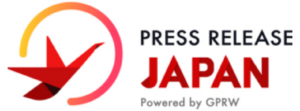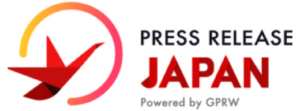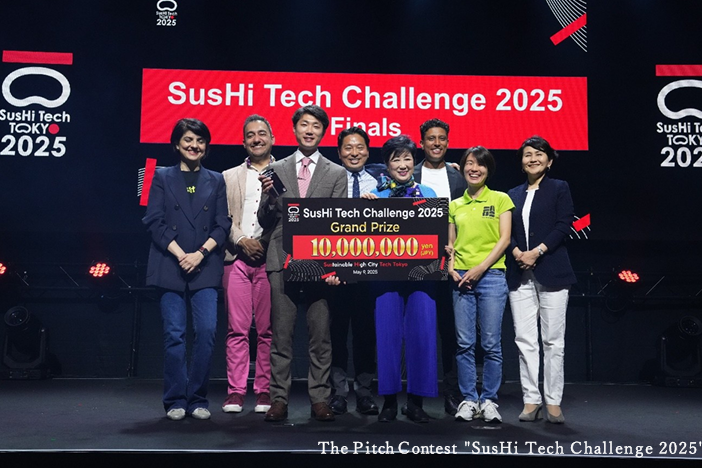SusHi Tech Tokyo, one of Asia’s largest startup conferences, has attracted a more robust attendance than ever this year as the Japanese capital steadily moved forward with its campaign to create a technology-driven sustainable future.
The result may also be a big boost to Tokyo’s stated ambition of becoming the “world’s most startup-friendly city.”
About 57,000 people from over 100 countries and regions attended the third annual SusHi Tech Tokyo from May 8-10 at a landmark waterfront convention hall, according to the conference’s host, the Tokyo Metropolitan Government. The turnout was up from 40,206 last year.
https://sushitech-startup.metro.tokyo.lg.jp/en/
The conference’s first two days featured an engaging lineup of startup exhibitions and pitches, alongside high-profile speeches and sessions. The final day was set aside for the public to immerse themselves in futuristic Japanese technologies, which sat well with the SusHi Tech slogan of “creating sustainable cities with cutting-edge technology.”
‘More Exciting, Richer in Content’
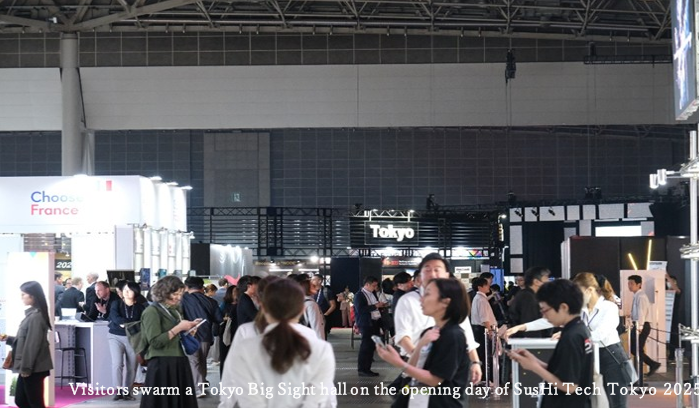
“I am experiencing what you may call much more excitement compared to last year and the first edition,” Tokyo Governor Koike Yuriko told a news conference halfway through SusHi Tech Tokyo 2025. “It has expanded so much and got richer in content.”
A total of over 600 startups, 60 percent of them from abroad, displayed and demonstrated their innovations focusing on artificial intelligence (AI), quantum computing and food tech. The number grew from 434 last year. These include a company which uses plant cell cultivation technology to produce high-quality coffee with 98-percent less water in an artificial environment.
About 360 innovators, venture capitalists, corporate leaders and other prominent speakers, including Taiwan’s Cyber Ambassador-at-large Audrey Tang, attended 136 sessions. Last year, 156 speakers attended 47 sessions.
The conference also provided connecting and networking opportunities with the number of business meetings totaling more than 6,000, up from 3,485 last year.
Governor Koike said the reputation of Tokyo and Japan as a safe and secure destination seems to be “relatively growing” amid the ongoing global unrest. “There are various current issues including tariffs, but we should rather seize this as a golden opportunity to shift them into a positive light,” she said, hoping that SusHi Tech contributes to this progress.
SusHi Tech Tokyo ‘Keeps Growing’
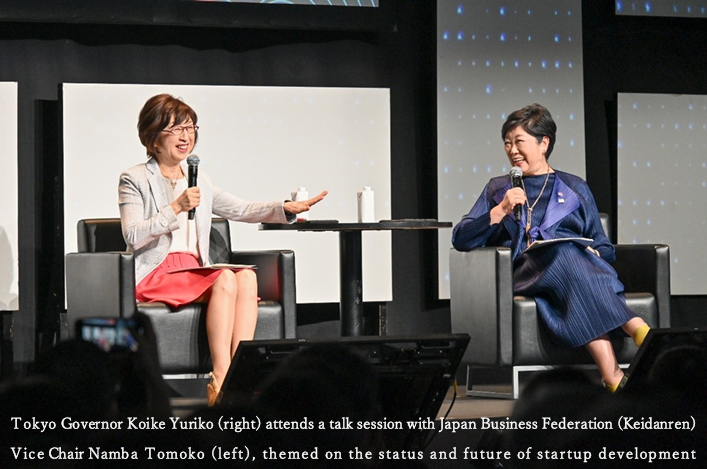
A cavernous hall at the Tokyo Big Sight convention complex reverberated with the hustle and bustle of 16 collective “pavilion” booths set up by overseas cities, countries and regions showcasing their home-grown startups. There were only five such pavilions last year.
These ecosystems, including startup superpowers France and Singapore, were generally positive about the conference‘s impact on the global scale.
“We’ve already had feedback from the exhibiting French enterprises that they had more business encounters than last year,” said Goto Takafumi, a trade official at the French public consulting firm Business France. “In this sense, I feel SusHi Tech will keep on growing.”
A dozen innovative players from France, home to Europe’s premier startup and tech event Viva Technology, flexed their muscles at the Business France pavilion. One of them is related to energy harvesting and storage for low-power electronics using organic photovoltaic technology.
Singapore hosted for the third time a pavilion managed by the state business-promoting agency Enterprise Singapore. The exhibit featured startups such as a food tech company specializing in allergy-free nutritional solutions and a firm developing digital infrastructure to support large-scale time-critical drone operations.
“In particular, we are committed to deepening our relationships and forging new win-win partnerships in Japan,” said Cindy Ngiam, the agency’s director for startup ecosystem and community.
“Over the years, we have seen how SusHi Tech Tokyo has managed to keep ahead of these changing trends and deliver timely, relevant content for its audience,” Ms. Ngiam added.
Fun At ‘Future Experience Pavilion’
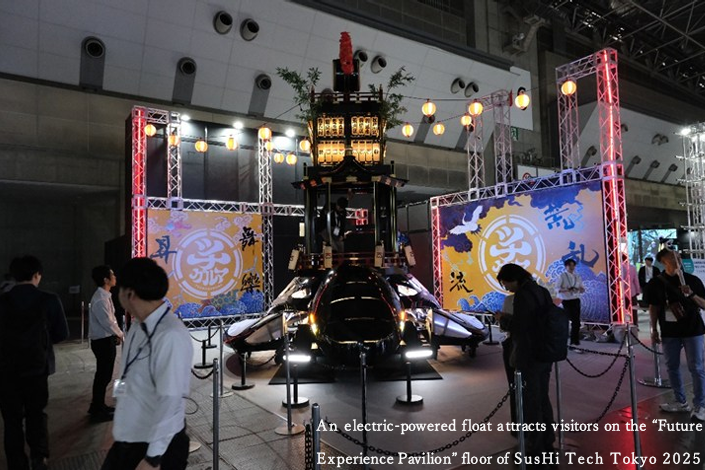
The final day of SusHi Tech Tokyo 2025 was open for general visitors of all ages to have interactive access to Japanese gizmos and machine systems free of charge.
At the “Future Experience Pavilion,” visitors could operate a stationary 5-meter-tall robot from a cockpit located inside its body and try sushi made with a 3D food printer using edible powder derived from food waste.
The startup calendar climaxed with the seven-way final of the signature pitch contest, SusHi Tech Challenge, which attracted 657 applicants from 46 countries and regions.
3D Architech, a Japanese company launched in 2023 in the US, won the contest’s Grand Prize for its excellence in scalable metal 3D printing technology.
SusHi Tech 2025 also actively engaged more than 300 young volunteers, including students, in the event’s operations to provide them with invaluable early experiences in entrepreneurship.
The Tokyo Metropolitan Government (TMG) has set the next SusHi Tech conference for April 27-29, 2026, again at the Tokyo Big Sight.
Tokyo Aims to Become ‘World’s Most Startup-Friendly City’
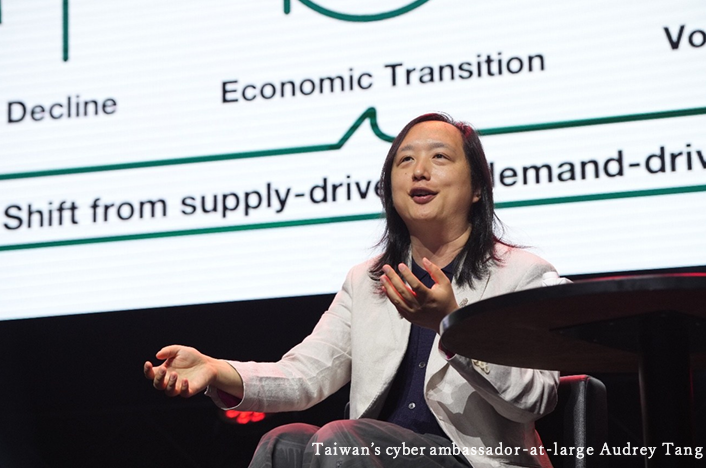
SusHi Tech Tokyo, short for Sustainable High City Tech Tokyo, has been the centerpiece of a startup strategy launched by TMG in late 2022 with “Tokyo’s 10 × 10 × 10 Innovation Vision.” It seeks to increase—by 10-fold in five years—the numbers of startups, unicorns, and collaborative public-private projects in Tokyo.
During the SusHi Tech conference, TMG doubled the floor space of Tokyo Innovation Base (TIB), which opened in late 2023 as a place for startup firms and ecosystem players worldwide to gather and interact. TIB, located in Tokyo’s main business district, has already welcomed more than 200,000 visitors and hosted over 900 events.
The 2022 strategy enshrines an audacious objective of transforming the megalopolis of 14 million into “the world’s most startup friendly city”—further enhancing Tokyo’s global presence as the main growth engine of the world’s No. 4 economic power behind the United States, China and Germany.
In her opening speech, Ms. Koike said TMG has planned to provide 1 billion US dollars over five years to support the 2022 startup strategy, and more than 900 million dollars has already been budgeted in the last three years.
TMG is also set to formulate its first AI strategy this summer. “We will create a Japanese model for use of AI in government services,” said Ms. Koike, a former member of national parliament, who was re-elected last July to her third term as Tokyo’s first female governor.
The number of projects procured by TMG from Tokyo-based startups has already topped the 10-fold target of 150 from the nine cases in 2022, Governor Koike told a SusHi Tech session with a Japan Business Federation executive.
But Vice Governor Miyasaka Manabu, a former Yahoo Japan chairman, told the business daily Nikkei, “We need to work still harder to increase unicorns.”
Japan currently ranks 12th in the world in the number of unicorns, according to the data-driven US Crunchbase News. As of mid-May, the country had 16 unicorns against table-topping 794 for the United States, 282 for China and 87 for India. Britain trailed them with 64. Other Asian countries Singapore and South Korea ranked higher than Japan with 22 and 21.
To measure how much Tokyo has improved its stature in the landscape of innovation, one may look up the closely watched annual global startup rankings published by the US consulting company Startup Genome.
Tokyo is ranked 11th in Startup Genome’s Global Startup Ecosystem Report 2025 published in mid-June. Other Asian cities Singapore, Beijing, Seoul and Shanghai are ranked higher.
Cities, Startups Joining Hands to Solve Urban Challenges
In parallel to the startup program, senior officials from 58 cities around the world held a meeting at a downtown hotel May 7-9 to prepare for a city leaders’ summit to be held as part of next year’s SusHi Tech Tokyo.
At last year’s SusHi Tech Tokyo, mayors, governors and other executives of 45 cities from five continents vowed to utilize the “technologies of startups to find solutions to urban challenges.”
In 2022, this global network of cities was established by Tokyo as a forum to discuss how to solve common challenges.
The major Swedish city of Malmo and the Indonesian capital of Jakarta staged “reverse pitches” on the SusHi Tech floor to attract overseas startups to their ecosystems.
Micael Nord, Malmo’s director for business and external relations, said that several Tokyo startups will visit his city later this year. “One of them will stay for a few months to carry out a proof of concept.”
Jakarta’s head of environmental planning, Fadly Haley Tanjung, wrote on social media that his SusHi Tech team had discussions with about 10 startups. One Japanese startup will be selected for a project concerning Jakarta’s waste management and renewable energy transition. “We are excited to deep dive their proposals.”
In a high-profile SusHi Tech session, Ahmed Jasim Al Zaabi, who heads the Abu Dhabi Department of Economic Development, discussed how to develop a global ecosystem with Tokyo Governor Koike. About a dozen startups from Abu Dhabi, the capital of the resources-rich United Arab Emirates (UAE), pitched their technologies—including a biotech solution that turns waste such as date tree remains into a biochar capable of converting dry desert sand into arable soil in one month.
The Abu Dhabi leader told Ms. Koike that the UAE and Japan are expected to conclude an economic partnership agreement this year. The UAE’s investments in Japan have more than doubled over the past five years, and it attracted over 80 per cent of Japanese investments in the Middle East.
Ms. Koike, who studied at Cairo University in her youth, recalled visiting Abu Dhabi for the first time in the early 70s. She praised the UAE for having developed from a rural economy into an “international, competitive country.” The governor also thanked Mr. Al Zaabi for helping arrange a meeting with UAE businesses for a group of Tokyo startups she led during her Middle East tour last November.
‘AI Cannot Make People Have Kids’
Taiwan’s Cyber Ambassador-at-large Audrey Tang, who also served as its first digital minister 2016-2024, and David Ha, CEO of Tokyo-based AI R&D unicorn Sakana AI, discussed how AI can accelerate the development of “digital public goods.” The term applies to open-source software, open data, open AI models, open standards and open content that are generally owned or provided for public use.
Ms. Tang’s idea is to practice democracy with the help of assistive AI and use upgraded democracy to govern AI better. She thinks digital technologies can be used to cultivate participatory democracy and social trust.
Mr. Ha, a former Google researcher who co-founded Sakana AI in 2023, said there are limits to what digital technologies can do to solve pressing social issues, such as the population decline.
“AI cannot make people have kids, or digital public goods cannot make people magically repopulate,” said Mr. Ha, who studied at the University of Toronto and Tokyo University. He added, however, “AI technologies can make people live more fitting lives.”
Sakana AI has been financially backed by investors and partners including US semiconductor giant Nvidia and leading Japanese firms such as NTT, KDDI and Sony.
Ms. Tang said SusHi Tech gathers together many innovators like Sakana AI who can skip the “hype curve”— a process in which inflated expectations for a new technology lead to collective disappointment when it does not deliver as promised. These innovators can reuse small open-source models to create value without wasting time between initial research and actual production.
“Here in the SusHi Tech, people have found a way to skip the hype curve and ‘quantum tunnel (break through the barrier)’ immediately to where the value is created in the market,” Ms. Tang said backstage. “So, join this new wave of sustainable high-tech entrepreneurship.”
